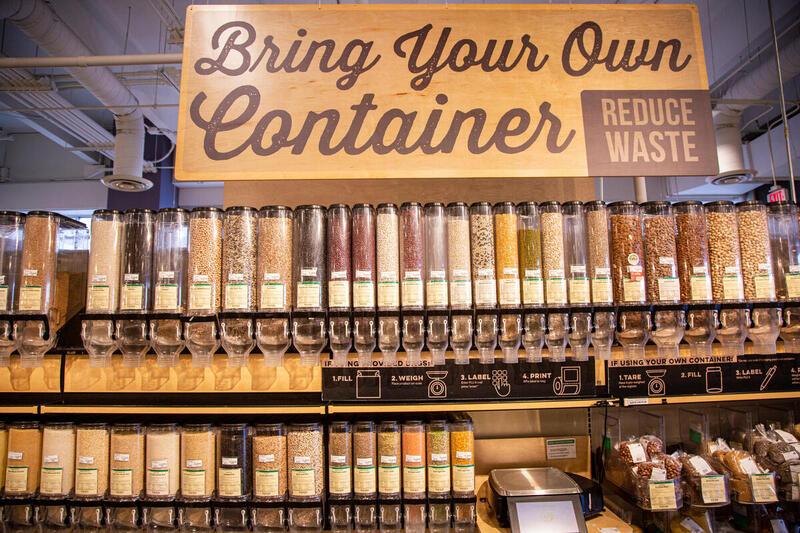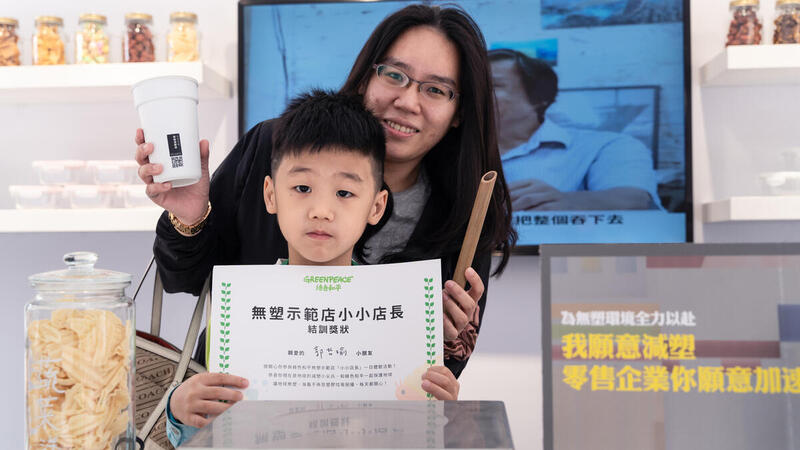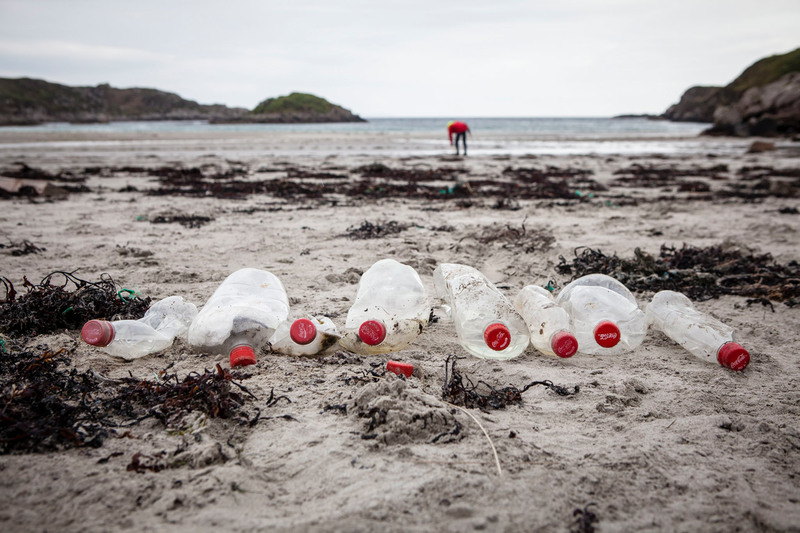
Every Plastic Free July people around the world take on the month-long challenge to avoid as much single-use plastic as possible. Wouldn’t it be nice if Coca-Cola and Pepsi also joined this challenge (wink wink)?
We can make a difference. But the entire system needs changing.
Those who have previously participated in Plastic Free July, which has been running since 2011, know there are some simple actions many of us can take to reduce our personal plastic footprint. Engaging in and supporting reuse, refill, and waste avoiding initiatives can be a great way to send a signal to companies and governments that people want and support an alternative to our throwaway plastic system. But we aren’t responsible for the billions of single-use plastic items pumped into the market each week, and many people don’t have access to alternatives. Throwaway plastic is virtually everywhere as we go about our lives.
That is why this Plastic Free July we’re demanding that the corporations that produce most of our goods packaged in plastic switch to systems of reuse & refill. Companies like Coca-Cola, PepsiCo, Nestlé, and Unilever have been among the worst plastic polluters in the Break Free from Plastic movement’s global brand audits four years in a row. All four brands have committed to reducing virgin plastic usage by 2025 (anywhere from a 5%-50% reduction), but the emphasis on recycled plastic distracts from the real solution: switching to systems of refill and reuse.
Access to refillable, plastic-free options in our communities should be more than a “nice to have.” We need consumer goods companies to work with the retail sector to roll out accessible reuse and refill systems if they are serious about tackling their plastic footprint.

Holding big brands accountable for their plastic pollution
In 2019, the top three FMCG companies (Coca-Cola, PepsiCo, Nestlé) produced 6,805,421 metric tonnes of plastic. In addition to fueling the plastic waste and pollution crisis, the almost 7 million metric tonnes of plastic could result in 34,027,105 metric tonnes of CO2 emissions across its whole lifecycle, contributing to the climate crisis.
Last year alone, Coca-Cola produced a mind-boggling 125 billion plastic bottles, and given that only 9% of plastic ever produced has actually been recycled we know that the majority of those bottles will likely be incinerated, dumped into landfills, or wind up polluting our oceans and communities.

In February, Coca-Cola became the first Big Brand to announce a commitment to make at least 25% of their packaging reusable or refillable by 2030. While this announcement was a step in the right direction, the company must go much further to actually reduce plastic use and prevent continued production of waste and pollution.
PepsiCo, Nestlé and Unilever, which currently have negligible amounts of reuse and refill in their packaging portfolios, have not made any public commitments to increase their use of those systems.
But, PepsiCo has indicated its intention to set a refill and reuse goal by the end of 2022. Now is our opportunity to remind PepsiCo that it can and must do better than its long-time rival on an issue that impacts billions of people around the world. Will Pepsi seize this moment and beat Coca-Cola in the refill and reuse race or will it come out with a weak commitment that does little for its concerned customers and virtually nothing for the planet?
This Plastic Free July, join Greenpeace in turning up the heat on big brands. Download our Plastic Free July toolkit to keep up the pressure throughout July.
May your month (and year) be filled with refillable, reusable, and sustainable options.
Lisa Ramsden, Senior Oceans Campaigner at Greenpeace USA and Sarah King, Head of Oceans and Plastics with Greenpeace Canada
